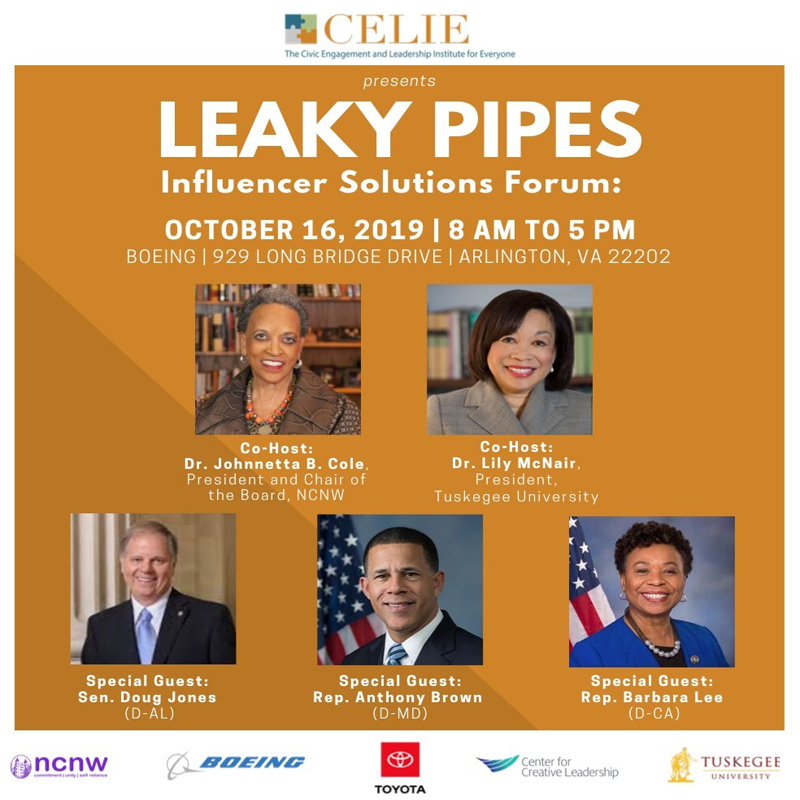The US Civic Engagement Leadership Institute for Everyone (CELIE) has arranged a one-day event to help fix the ‘leaky’ pipeline and promote more minority women into C-suite positions.
The invite-only event titled “Leaky Pipes: Influencer Solutions Forum” is scheduled to take place on the 16th October at the Boeing offices in Arlington, Virginia. The Forum will unite leaders from Fortune 500 companies, Historically Black Colleges and Universities, the federal government and the US Congress to not only identify the challenges, but also find solutions to help recruit, retain and advance high-potential women of colour into c-suite positions, confirms CELIE.
“It is no secret that women of colour, and particularly Black women, too often face insurmountable challenges in the workplace, which includes racism, pay inequity and sexism,” said Anita Estell, Founder of CELIE. “What is evasive is determining the solutions to address this. CELIE is committed to being a leader in not only identifying the problems, but also implementing solutions to erode the barriers that keep talented women of colour from executive office.”
PREPARING TOMORROW’S FEMALE LEADERS
According to Dr Lily McNair, President of Tuskegee University, “Black women now outpace every other demographic in educational attainment. As we prepare the next generation of women leaders we need to ensure opportunities exists – at every level and in every field – for them to reach their full potential.”

This event comes in response to a series of studies by McKinsey Company, Lean-in.org and the Kapor Foundation that document the attrition rates of minority women in corporate America. Their findings reveal that Black women are leaving corporate management positions faster than any group. Its research concludes that Black women, in particular, receive the least amount of sponsorship, stretch assignments and assistance of all the groups studied. Research conducted by the Government Accountability Office revealed similar findings.
CORPORATE DUTY
Dr Johnnetta B. Cole, President and Chair of the Board at the National Council of Negro Women, believes that equality is not just a moral issue, but an economic one: “More and more women of colour are the breadwinners for their households. The biases and systems of discrimination that prevent qualified women from reaching their full potential in the workplace has lasting economic effects in their communities. We are beyond the point of just talking about equality and equity. We each have a duty to guarantee it.”
It’s hoped that this meeting will contribute to the development of a framework/prototype programme to address this issue across multiple sectors, disciplines and professions, with an emphasis on science, technology, engineering, arts and mathematics (STEAM) careers.







































